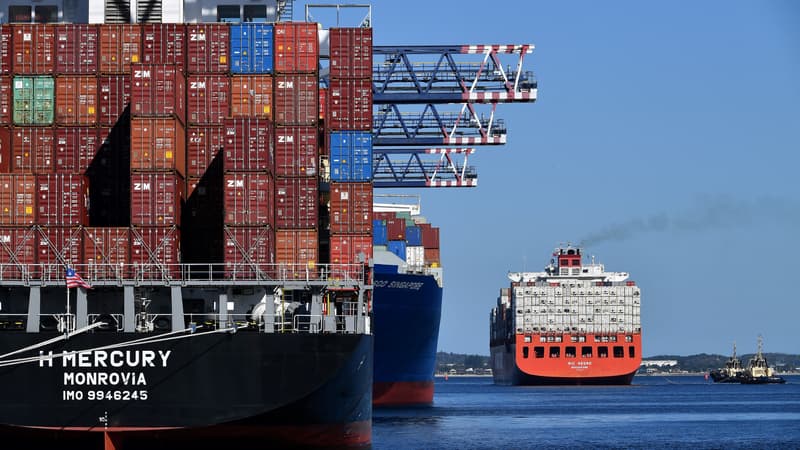It is “the backbone of world trade”, as described by the Ministry of the Sea: maritime transport represents 80% of the global volume trade, according to the World Trade Organization. Cars, teddy animals, but also hydrocarbons, cereals, minerals … the transport of goods and, therefore, trade by sea, reaches an unmatched magnitude to date.
This “dependence on world trade in the seas,” as described by Rachid Chaker, a research teacher and author of a report on the war at sea, highlights the vulnerability of economies and, therefore, the threats that weigh on the actors in the sector, either companies that use this means of transport, but also to the owners … as well as the states, which must protect their strategic interests.
Multiple threats and numerous objectives
Either piracy acts, sabotage of submarine cables, mining (clandestine) of sea spaces, port blocking or interference of GPS systems, threats are numerous.
The researcher recalls that destabilization attempts have proliferated in recent years and quotes in particular the Russian attacks against the ports in Ukraine that have interrupted wheat trade and caused shortage, the multiplication of the ships attacks by hutíes in the Red Sea, the sabotages of the gas pipes and the waves.
If commercial ships are the most “common” objectives, Rachid Chaker evokes in their analysis the vulnerability of facilities such as submarine cables, through which a large amount of data passes, but also ports or even wind farms in the high seas.
The military force in support
The protection of merchant ships is “traditionally and historically” one of the prerogatives of the French Navy, Admiral Nicolas Vaujour, Chief of Cabinet of the Navy, explained in early September, during a meeting with the Association of Defense Journalists.
Located at the crossroads between the Red Sea and the Gulf of Aden, between the coast of Djiboutian and Yemeni, this corridor is “a hot point of global maritime traffic” and “a strategic access door” on the road between Europe and Asia, as described by the Ministry of the Armed Forces.
The Ministry of the Armed Forces reports that traffic in the Red Sea “that represented 13% of world traffic, 30% of container traffic and 21% of energy traffic”, “two” divided “since the beginning of Houthie attacks in 2023.
It is for this reason that the European Union was launched in February 2024, the ASPID mission, whose objective is to protect maritime traffic and guarantee “freedom of navigation”.
To protect the, many, ships that pass there every day, the French Navy provides “tacos” compounds of warship to “face the entire spectrum of threats that can be against a surface boat in a narrow”, from the armed drone to the antiservice missile to the ballistic missile.
Because if the anti -vions aster 15 missiles, which are much more expensive than the drones they intercepted, created the controversy, for the head of the Navy, the strategy remains valid: “We protect a boat whose goods were worth more than one billion euros.”
Making an open war and affirmed to maritime trade does not risk, at least in the short term, “putting an economy on the ground, or being a threat to the vital interests of a nation,” according to Richard Chaker.
Source: BFM TV


